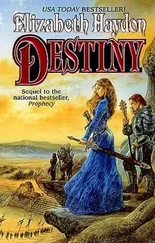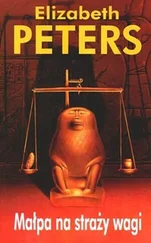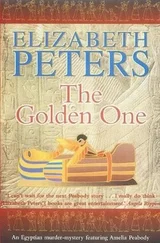
Elizabeth Peters
A River in the Sky
Book 19 in the Amelia Peabody series, 2010
Thanks to recent negotiations with the heirs of Mrs. Emerson, the editor is able to present another volume of her memoirs. (If the reader is curious about the chronological placement of this particular volume, the editor notes that A River in the Sky chronicles events that occurred in 1910, and thus follows Guardian of the Horizon [1907-1908] and precedes The Falcon at the Portal [1911].) In this case Mrs. E. has gone to greater lengths than usual to conceal the identities of various persons mentioned. This may be attributed in part to the delicacy of the political situation at that time and in part to Mrs. Emerson’s wish to avoid lawsuits. Students of this somewhat obscure period may be reminded of actual events and/or individuals. The editor does not feel it is her responsibility to verify or deny such theories.
Emerson looked up from the book he was reading.
“The Old Testament,” he remarked, “is a tissue of lies from start to finish.”
As I have said before, and never tire of repeating, my husband is the greatest Egyptologist of this or any other century. It cannot be denied, however, that he holds somewhat unorthodox opinions on certain subjects. Prejudiced he is not; his critical comments are applied indiscriminately to all the major world religions, and not a few of the minor ones. Ordinarily I do not bother to protest, since contradiction only inspires him to more outrageous flights of rhetoric. However, I had become bored with my own reading material-an article on negative verb forms in the latest issue of the Zeitschrift für Aegyptische Sprache-and considered what response was most likely to result in a refreshing discussion.
The weather was unusually warm even for August in Kent, and the roses in the garden outside Emerson’s study drooped dustily. This chamber, the library in point of fact, is one of the most comfortable rooms in the house, a pleasant clutter of books and papers sprinkled with the ashes from Emerson’s pipe and the hair shed by cats of various colors. We all tend to gather there; Emerson’s attempts to claim it as his own are sporadic and ineffectual. He only does it to stir up an argument when other sources fail.
The only other member of the family present that morning was Nefret, our adopted daughter. My son was presently on an archaeological excavation in Palestine; his Egyptian friend David, whom we regarded as one of us, had betaken himself to Yorkshire in order to be with his affianced bride, my niece Lia.
If I had been looking for support-which I was not, since I do not require assistance in my discussions with Emerson-I would have known I could expect no agreement from Nefret.
To look at her, one would have assumed Nefret to be a classic English beauty, fair-skinned and blue-eyed, with a glorious crown of golden-red hair. Yet her formative years had been spent in a remote spot in the western desert of Egypt, where the old gods were still worshipped, and she had served as High Priestess of Isis before we rescued her and brought her back to the land of her ancestors. Though I had endeavored to instruct her in the faith of those ancestors, I harbored no illusions as to my success. Early impressions are difficult to erase and from time to time she would say or do something that indicated she was more in sympathy with Emerson’s views than with mine. Her frequent visits to the little pyramid we had caused to be built in honor of a young man who had perished in her service might have been occasioned by respect and fond remembrance; but it would not have surprised me to learn that she sometimes addressed a prayer to one of the pagan deities mentioned in the inscriptions. Curled up on the sofa, playing with one of the cats, she looked at me with an anticipatory smile.
I returned my attention to Emerson, whose smile was not so much anticipatory as provocative. I had decided on a flank attack rather than a direct assault.
“Good heavens, Emerson, are you reading the Bible? Are you feeling quite well?”
Emerson’s smile broadened into a grin that displayed a set of large white teeth. “Nicely done, my dear. I assure you, my health has never been better.”
As if to verify the statement he rose to his feet and stretched. Muscles rippled across the breadth of his chest and along his arms. They were admirably displayed by his costume; his shirt was open at the throat and his sleeves rolled above the elbows. His thick black hair was becomingly disheveled and his blue eyes shone with sapphirine brilliance. The sight of Emerson’s splendid physical endowments never fails to stir strong emotions, but on this occasion I resisted the distraction since I was genuinely curious.
“Why are you reading the Bible, Emerson?”
“The answer to that question will become evident in due course, Peabody. Have you no comment to make on my original statement?”
“Well, as to that,” I replied, settling myself more comfortably, “you know as well as I do that the statement is, to say the least, inaccurate and exaggerated. Don’t tell me you have read the entire Old Testament. How far had you got?”
Emerson glanced down at the volume open on his desk. “Genesis and Exodus,” he admitted. “It gets damnably boring after that.”
“One does not read the Bible to be entertained, Emerson,” I said severely.
“Than why the devil does one read it?”
Before I could reply, an emphatic knock at the door preceded the appearance of Rose, who announced that luncheon was ready. Our very efficient housekeeper is allowed in Emerson’s study only when it reaches a stage of questionable hygiene; she gave it a critical look, pursed her lips, and shook her head.
Emerson saw the look. Rising in haste, he said, “Coming, Rose, coming at once.”
A formal meal, in such warm weather and when there were only three of us, was in my opinion a waste of time. Gargery, our butler, did not share this opinion, primarily because he seized every opportunity to listen and contribute to our conversation. (I do not encourage this, but Emerson has not the least notion of proper behavior with servants.) After serving cold ham and salad, Gargery inquired, “May I ask, sir and madam, whether you have had a letter from Master Ramses recently?”
As I had often told Gargery, our son had reached an age at which that childish title was inappropriate. The name was equally inappropriate, but Ramses had been given that appellation in infancy because of his imperious manner and the fact that his swarthy complexion and dark eyes and hair appeared more Egyptian than English. (I have sometimes been asked to account for this resemblance. I see no reason why I should.)
I replied with a rather curt negative, and Emerson, who had finished his ham and salad, asked, “What do you know about the Old Testament, Gargery?”
“It’s been a while since I dipped into the Good Book, sir,” Gargery admitted. “I remember David and Goliath, and the parting of the Red Sea, and a few other stories.”
“Stories is the word,” said Emerson. “There is not a jot of historical evidence for any of them.”
This was aimed at me, not at Gargery, so of course I responded. “If it is history you want, you had better skip on to the books of Kings and Chronicles. The historical validity of the Exodus has been much debated-no, Emerson, I do not care to debate it now-but the lives of the kings of Israel and Judah are based on solid historical evidence.”
Читать дальше









